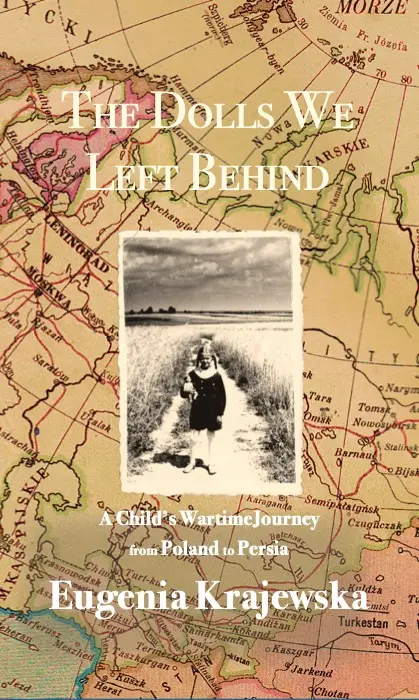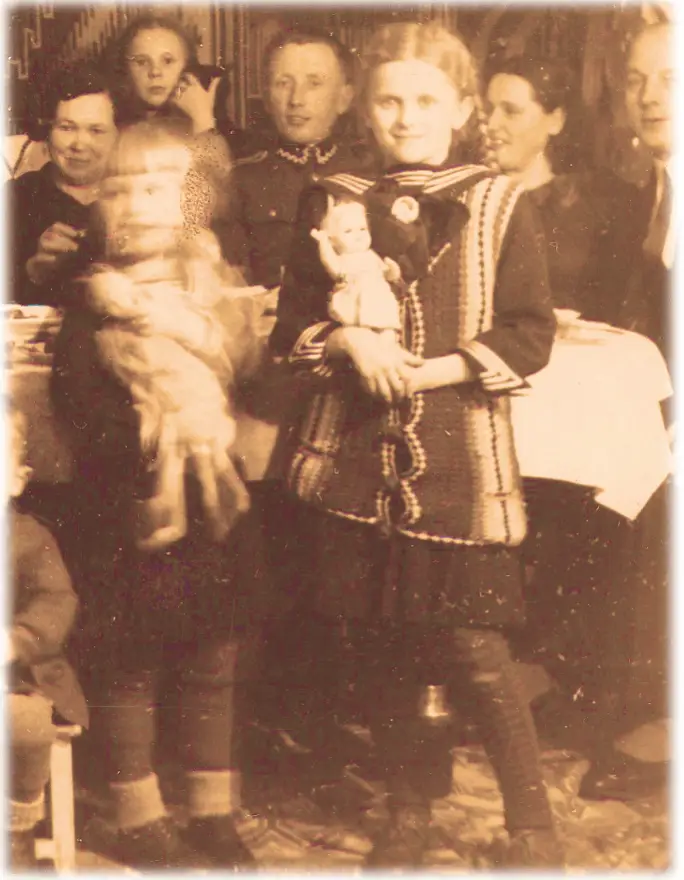The Dolls We Left Behind
From exile to escape —
a story that Stalin could not erase.
Between 1940 and 1941 more than a million people were forced from their homes in eastern Poland, from an area known to Poles as the ‘Kresy’, the borderlands adjoining Soviet Russia. These were Poles, Jews, Ukrainians, and Lithuanians, branded by Stalin’s regime as ‘enemies of the people’. Entire families were deported in overcrowded cattle trucks to remote labour camps across the Soviet Union. Among them were Genia Wenserska, her younger sister Nusia, and their parents.
This memoir tells the story of a family caught in the machinery of history. Before the war, their life in the small Polish town of Mołodeczno was modest but happy, marked by family visits and celebrations, school, and the innocent play of two little girls and their dolls. Genia’s vivid recollections, later shaped by diary entries written in the safe haven offered by Iran, trace the family’s arrest, deportation, and survival in a Siberian penal colony. Their eventual escape — part of a Polish mass exodus led by General Anders — took them on an extraordinary journey across the vast continent of the Soviet Union.
The Dolls We Left Behind is both a personal testament and a historical witness. It sheds light on one of the lesser-known atrocities of the Second World War, and on the quiet strength of a family who endured and survived.

This is a fascinating and historically significant memoir, which provides both a rich account of growing up in the borderlands of eastern Poland in the 1930s and a moving description of forced deportation to Siberia during the Second World War.
The text is beautifully illustrated and contains a wealth of useful contextual information. I can wholeheartedly recommend it to anyone interested in the history of eastern central Europe in the twentieth century.
Dr Ben Dew, Associate Professor of Cultural History,
Centre for Arts, Memory and Communities, Coventry University
This book provides a touching account of a Polish child’s first-hand experiences of the Second World War and deportation by the Soviets to Siberia. It is well researched, clearly written and shines light on the tragic impact of war. It also shows triumphant survival through faith, hope and the love of family. We learn further of the dire consequences of war, with important lessons for our own times.’
Professor Antonia Bifulco, Middlesex University, London

About the author
Eugenia Krajewska, a little girl from the Kresy –
a survivor of the Siberian gulag
Eugenia Marta Krajewska (née Wenserska), known to family and friends as Genia, was born in 1928 in the Polish borderland town of Mołodeczno – then in eastern Poland, now in Belarus. At the age of 12, she was deported with her family to a Siberian labour camp during Stalin’s mass arrests of 1940. She survived harsh conditions and illness before reaching safety in Iran in 1942 as part of the civilian evacuation led by General Anders.
After the war, Eugenia settled in England, earned a degree in pedagogy, and devoted her career to teaching at Divine Mercy College, the Polish boys’ boarding school near Henley-on-Thames, created by the Polish community in post war Britain.
Eugenia lived through some of the most tragic events of Polish history during the Second World War which she captures in the personal narrative of The Dolls We Left Behind. She also co-edited and was a contributor to the book: Isfahan: City of Polish Children, published in both Polish and English language versions in 1989.
